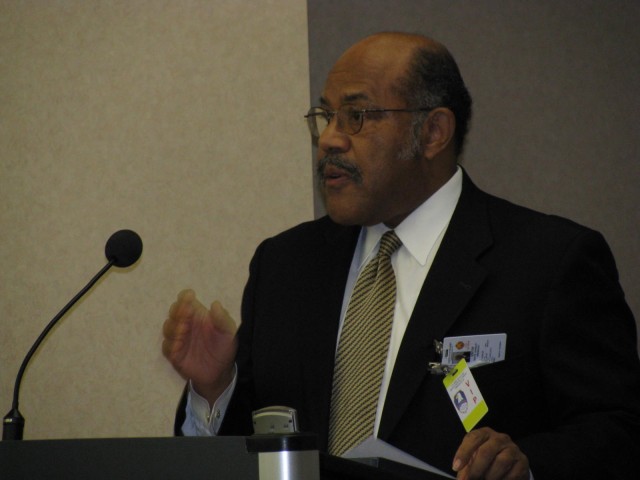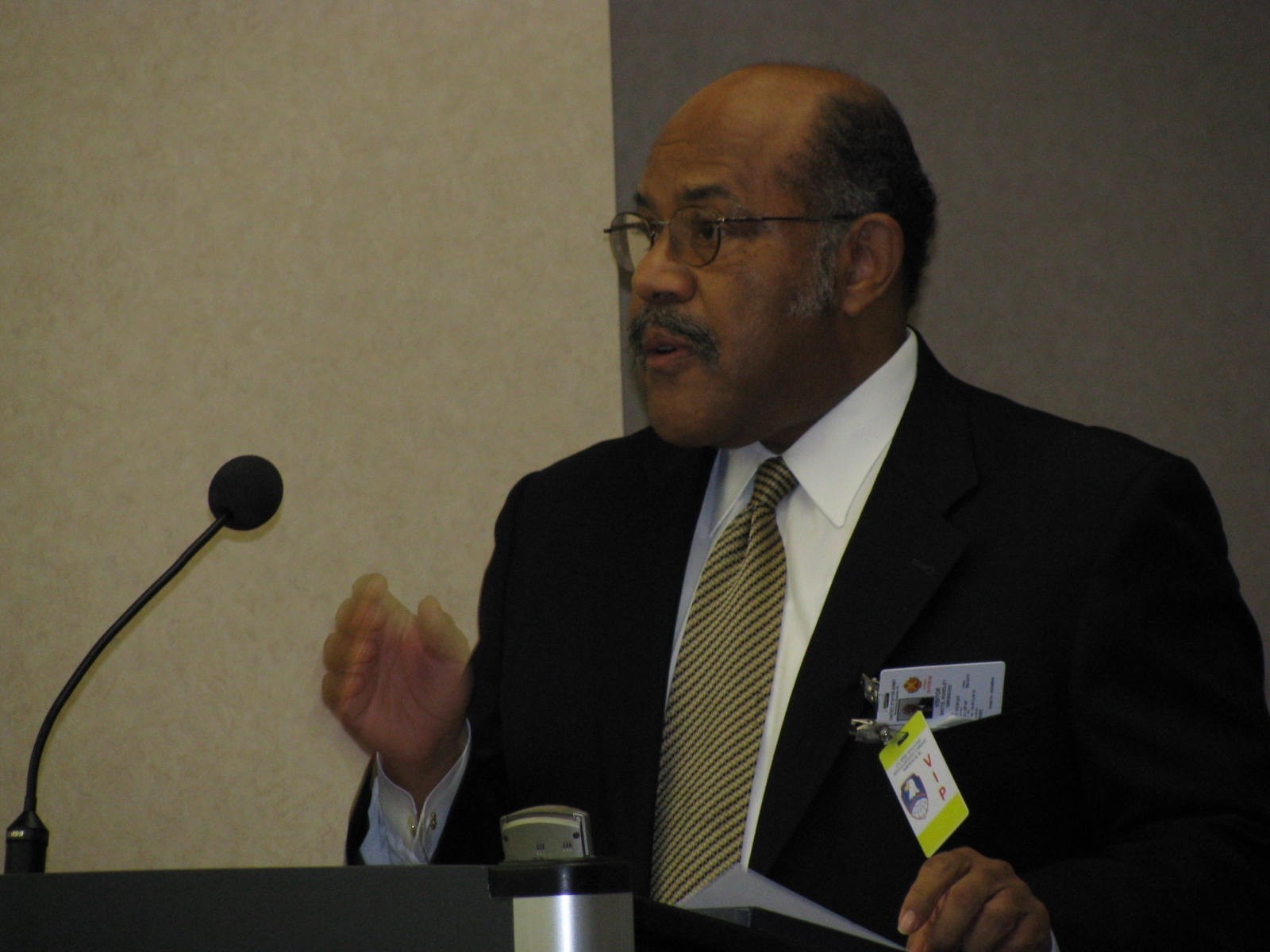All the while, as he was growing up in Huntsville, Hundley Batts knew what he wanted to do with his life.
When asked, the young newspaper delivery boy would tell people "I'm going to be a businessman."
And because of the progress made by blacks who came before him, Batts was able to fulfill that dream.
Today, Batts is the successful owner of an insurance company and two radio stations, he is a member of several local community and civic organizations, including the Chamber of Commerce, Huntsville Heritage Foundation and Rotary Club, and was recently recognized as one of five 2008 Northern Alabama Business Hall of Fame Laureates by Junior Achievement of Northern Alabama.
"We owe a debt to our forbears, to the fancy footwork of those who came before us," he said.
Batts spoke about the "footpaths, footprints, foot falls and fancy footwork" of past generations of blacks at a Black History Month Celebration at the Space and Missile Defense Command/Army Forces Strategic Command on Feb. 26. The event was hosted by the SMDC/ARSTRAT Equal Employment Opportunity Office.
"This is more than just an ethnic objective," Col. John Hamilton, chief of staff at SMDC/ARSTRAT, said in opening remarks at the celebration. "This is an opportunity to talk about what we're all about, an opportunity to recognize African-Americans and reflect on what's important in life."
Hamilton said blacks have done a "tremendous job in contributing to our nation and, particularly, to our military ... They contribute to what makes us great, what makes us stronger as a nation."
Each year, the Association for the Study of African-American Life and History (ASALF) chooses the national theme for Black History Month. This year's theme was "Carter G. Woodson and the Origins of Multiculturalism."
Woodson, a black author, historian, educator and civic leader established the forerunner of Black History Month - Negro History Week - in 1926. He was also the founder of ASALF. Batts said he remembered celebrating Negro History Week when he was a young boy.
"We realized a week was not enough time to study black history," he recalled. "In realizing this, we realized black history is the study of the footprints of mankind. Sometimes the path was narrow ... and the narrow paths unknowingly helped us in spite of our fears, our uncertainties and the odds."
Batts said Woodson knew that "to know ourselves we must understand our contributions to black history and world history. This is not the history of only black people, it's also the biography of unsung heroes, the forgotten souls who dared to dream dreams for their children and grandchildren."
In his presentation, Batts named several historical black figures who have contributed to national and world history.
Historical figures like Benjamin Banneker, a black mathematician, astronomer, clockmaker and publisher who redrew the survey of the nation's capital from memory after its French-American Peter Charles L'Enfant creator resigned and took his original plans for the city with him, leaving no copies behind.
And, Dr. Alexander T. Augusta, the first black Civil War doctor, the highest ranked black officer during the Civil War and the first black to hold a medical commission in the Union Army.
And, George Washington Carver, an agriculture educator and researcher at Tuskegee Institute whose scientific discoveries included more than 300 different products derived from the peanut, more than 100 from the sweet potato, about 75 from pecans and the crop rotation system.
And, Rosa Parks, a black woman in Montgomery in 1955 whose refusal to give up her seat on a bus to a white man on a public school bus made her known as the "mother of the civil rights movement."
And, Sonnie Hereford, the first black student to integrate Huntsville City Schools.
And, Dr. Mae Jemison, the first black female astronaut in space and the fifth black astronaut in NASA history.
"We celebrate black history," Batts said. "Some may ask if it is necessary to do so. It's our duty."
Describing black history as "the story of one of the greatest struggles of all time," Batts said that to honor and redeem the past "we must study and celebrate the footpaths, and understand the foot falls and fancy footwork of those before us."
Historical black leaders in many fields "have opened doors nailed shut. We're here because of their sacrifices," he said.
"Each of us is not only tied to our past, we're indebted to it. We must know our history and we must honor our heritage."
Batts also challenged his audience to make some footprints of their own in black history.
"What footsteps are we leaving for those who come behind us' Are we building a base today so others can advance' Are we building a legacy that future generations will celebrate and embrace'" he asked.
"We're pilgrims on the journey of the narrow road."


Social Sharing